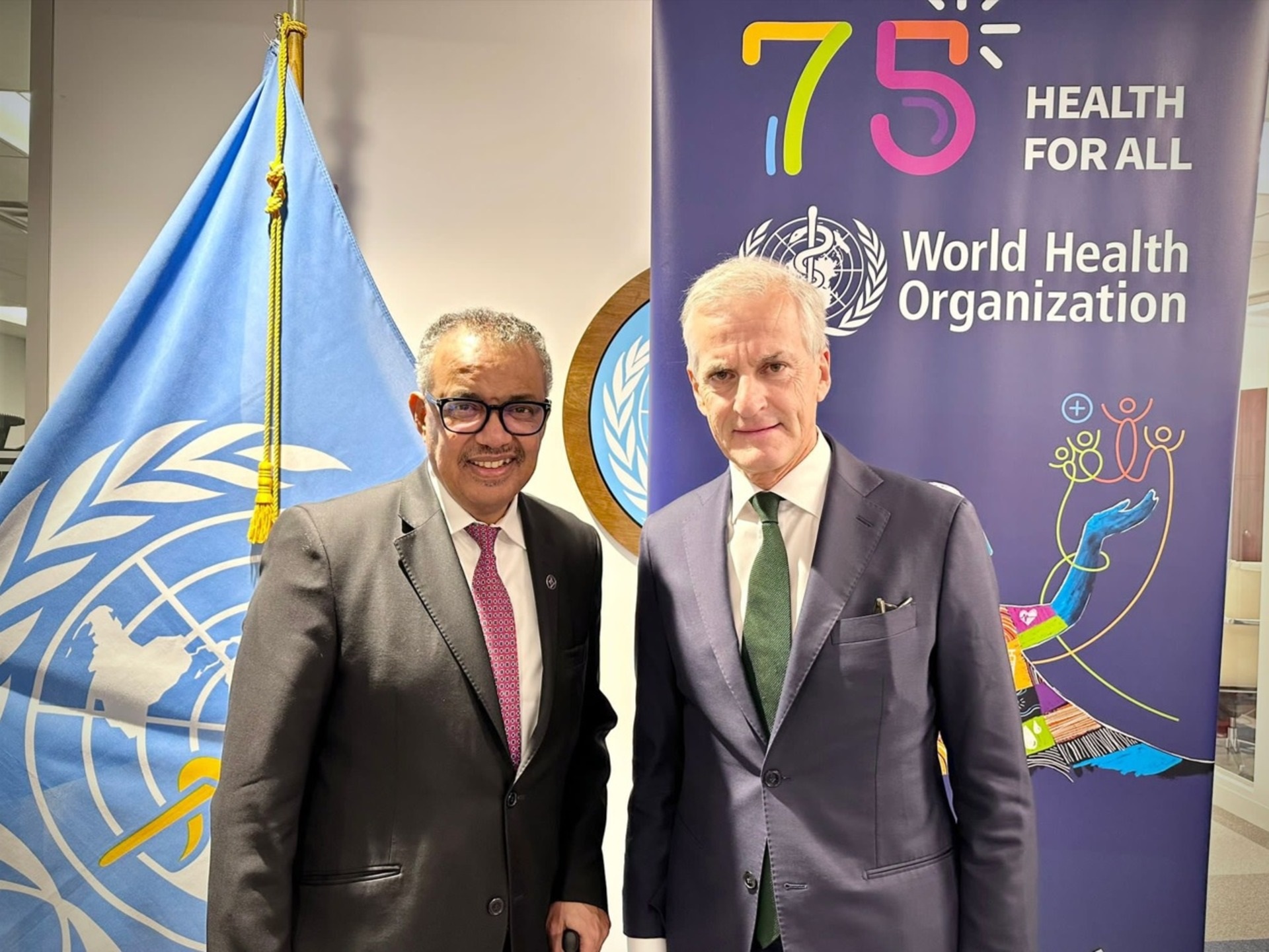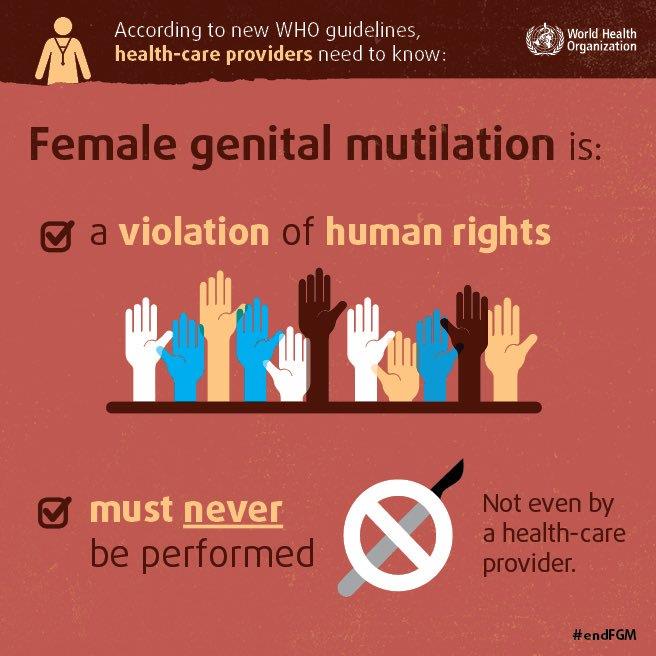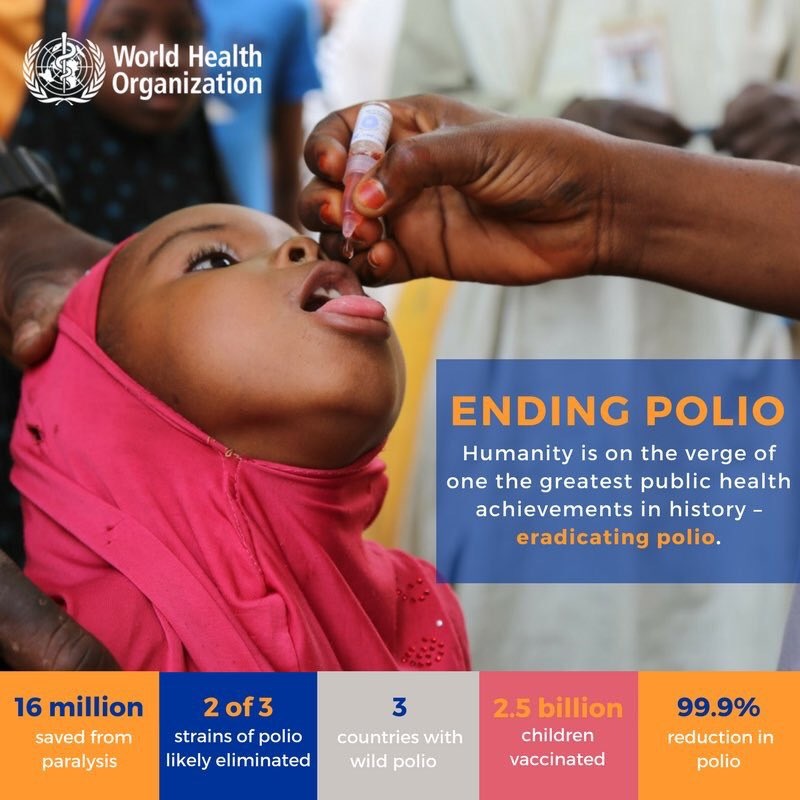
Norway
Partners in global health
Community members attend a social awareness meeting about maternal death, infant mortality, stillbirth and other health issues is conducted by the Ministry of Health and Family Welfare, Bangladesh
This content was last updated on 19 May 2023
Driving progress towards health and well-being for all
WHO and Norway have a longstanding partnership in global health to ensure that no one is left behind. Key priority areas of the partnership include sexual and reproductive health and rights, antimicrobial resistance, noncommunicable diseases (NCDs), health in relation to climate change and pollution, and outbreak and crisis response.
Norwegian efforts in global health are spearheaded by political leadership at the highest level and backed up by global diplomacy and investment of Norwegian aid resources. Norway's humanitarian strategy takes an integrated approach using health and education as key priority areas. In April of 2018, the Prime Minister of Norway, Erna Solberg, who is also a Co-chair of the UN Secretary-General’s SDG Advocacy Group, wrote a joint letter asking WHO to lead the development of a Global Action Plan for Healthy Living and Well-being for All to help reach Sustainable Development Goal 3.
WHO stepped up to this challenge and with the SDG Action Plan. PM Solberg welcomed the plan in October 2018 at the World Health Summit, emphasizing the importance of investing in health: "A healthy and well-educated population is essential for social and economic development." With Norway's strong support, The Global Action Plan to accelerate Sustainable Development Goals was launched September 2019 at the UN General Assembly.
In 2019, Norway became the first country to include NCDs strategy in its international development policy. Norway's flagship NCDs initiative with WHO was initiated in 2021 to support activities to reduce death and illness from cardiovascular diseases, cancer, diabetes, respiratory diseases, and mental health conditions in low- and middle-income countries. In early 2020, the Norwegian government published its strategy, Combating Non-Communicable Diseases in the Context of Norwegian Development Policy (2020-2024).
The strategy highlights three priorities:
- Preventing and reducing risk
- Strengthening health systems, with a focus on primary health care
- Supporting global public goods
Norway's support has also resulted in progress under the Global Action Plan for Healthy Lives and Well-being for All framework.
Norway has launched and invested in several health initiatives with other global health leaders including its long-standing co-investor status in Grand Challenges through the Saving Lives at Birth initiative, the Global Financing Facility in support of Every Woman Every Child, Gavi, the Vaccine Alliance for increasing access to immunization in less-developed countries and the Coalition for Epidemic Preparedness Innovation that ensures the world has the necessary vaccines for disease outbreaks.
Also in 2019, WHO and the Norwegian Centre for E-health Research jointly hosted the first WHO Symposium on the Future of Digital Health Systems in the European Region. The third symposium is planned in September 2023.

Dr Tedros met with Norway Prime Minister, Jonas Gahr Store on September 21, 2023 at UNGA to discuss tackling future health threats, including through the Pandemic Accord
Dr Tedros met Prime Minister of Norway Jonas Gahr Støre on 21 September 2023 at the United Nations General Assembly, where they discussed lessons learned from the COVID-19 pandemic to strengthen global defences against future health threats, including through the Pandemic Accord.
Emergency preparedness, outbreak and crisis response
Norway has been a strong supporter of WHO's work on emergencies response, supporting financially, amongst others, Syria during the 2016-2017 biennium, or the Ebola outbreak in the Democratic Repuiblic of the Congo since the outbreak and through the response.
Norway also contributes to global health security by supporting WHO's Contingency Fund for Emergencies (CFE). in 2020-21, Norway was the third-largest contributor to the CFE, with contributions of US$ 6 million.
Ending female genital mutilation

Norway's collaboration and contribution to the Human Reproduction Programme, a partnership hosted at WHO, gives crucial support to women and men, including adolescents and those who are under-served and marginalized, for getting access to sexual and reproductive health information and services.
In 2018, funding from Norway supported the development of a WHO clinical handbook, Care of girls and women living with female genital mutilation. This document addresses the health care needs of the 200 million girls globally who have suffered from FGM and the more than 3 million girls who are at risk of FGM every year, a number that is projected to rise to 4.6 million by 2030 if prevention efforts are not accelerated.
Norway has advocated for accelerating the eradication of FGM at several United Nations events, including the 15th Anniversary of the International Day of Zero Tolerance for Female Genital Mutilation, organized and supported by Norway, WHO and other partners.
With Norway's support, WHO continues to advocate for this harmful practice to stop. In 2020 WHO will launch two products which will work towards ending FGM: (1) an innovative training package for midwives and nurses, who can play an important part in preventing FGM; the package, which includes a training manual, an animated video, and training aids, will be tested in a multi-country study in three high prevalence countries; and (2) an online cost calculator to estimate the cost savings to countries of investing in FGM prevention within and outside the health sector.
Health, climate change and pollution
In 2018 Norway contributed NOK 4 million to WHO through the Norwegian Development Program to Combat Marine Litter and Microplastics. WHO, in cooperation with UN Environment, has used this funding to begin mapping the health impacts of microplastics. Thanks to Norway, WHO released an analysis of research related to microplastics in drinking-water and called for a crackdown on plastic pollution.
In 2022, Norway contributed over NOK 9 million to WHO to protect people's health from environmental threats like air pollution, responsible for an estimated 13 million deaths every year. With this funding WHO implemented programming in Montenegro, Tajikistan, Kyrgyzstan, Nepal, and Ghana amongst other places.
Neglected tropical diseases
Norway is a core contributor to TDR, the Special Programme for Research and Training in Tropical Diseases that is co-hosted by WHO, UNICEF, UNDP and the World Bank. TDR aims to reduce the burden of infectious diseases of poverty through research and innovation. In 2022, Norway contributed over US$ 300 000.
The funding supported TDR’s core activities, which focuses on strengthening research capacity, research for implementation, and global engagement through an integrated approach.
Results from TDR's research and clinical studies recently led to the approval of a landmark treatment for river blindness. Around 200 million people are at risk for the disease that causes severe itching, disfiguring skin conditions and visual impairment, including blindness. More than 99% of infected people live in 31 African countries. TDR was instrumental in the evaluation of moxidectin for river blindness over nearly two decades of research and collaboration.



